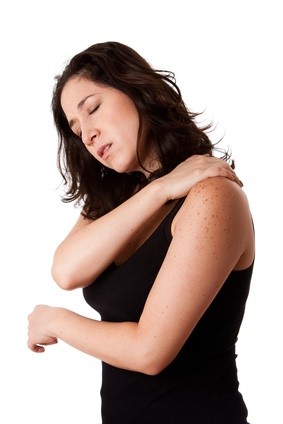 Why do rotator cuff tears and rotator cuff tendinitis hurt so much?
Why do rotator cuff tears and rotator cuff tendinitis hurt so much?
As a shoulder specialist, one of the most frustrating situations is trying to control a patient’s pain, when they present with a rotator cuff tear or rotator cuff tendinitis. Rotator cuff pain, after rotator cuff surgery, can be significant. Rotator cuff pain often tends to intensify at night, especially if a person is sleeping on their injured side.
As physicians, we are unsure as to why rotator cuff pathology causes so much rotator cuff pain and have not been very good at controlling it.
High dose pain medications such as Percocet, hydrocodone, or even oral Dilaudid, have been used without great success.
A scientific break through in identification of one of the sources of rotator cuff pain has been identified in a study conducted at the University of Oxford published in the August 2014 American Journal of Sports Medicine. Authors Sarah Franklin PhD et al. looked at the role of glutamate and the glutaminergic system.
They found that there was an increase in glutamate production in patients with rotator cuff tears as compared to a control groups. With this information, pain medication that targets this enzyme can be generated.

Leave a Reply
You must be logged in to post a comment.